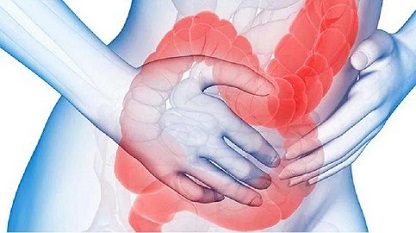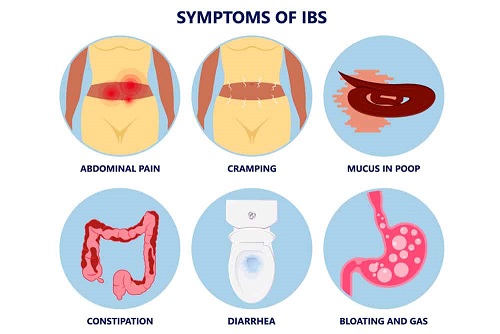Meta Study Finds Astonishing 12 Percent Incidence Rate Of Irritable Bowel Syndrome (IBS) Among Post-COVID Individuals!
COVID-19 News - Irritable Bowel Syndrome (IBS) Apr 15, 2023 2 years, 10 months, 1 week, 2 days, 21 hours, 59 minutes ago
COVID-19 News: A groundbreaking meta-analysis by researchers from the University of Bologna-Italy has revealed that COVID-19 survivors are at a significantly higher risk of developing irritable bowel syndrome (IBS) compared to those who have never contracted the virus. With over 647 million confirmed cases of COVID-19 worldwide, the long-term consequences of the virus are becoming a mounting concern. This latest study is set to trigger widespread alarm as the post-COVID-19 gastrointestinal symptoms, including abdominal pain, anorexia, diarrhea, nausea, and vomiting, are now affecting a large portion of the global population.
 The comprehensive study, which analyzed data from 10 previous studies and included a total of 2763 COVID-19 patients, revealed an astonishing 12% incidence rate of IBS among these survivors. This number drops to 4% when considering only high-quality studies. For functional dyspepsia (FD), a condition characterized by upper abdominal discomfort and indigestion, the incidence rate was reported at 4%.
The comprehensive study, which analyzed data from 10 previous studies and included a total of 2763 COVID-19 patients, revealed an astonishing 12% incidence rate of IBS among these survivors. This number drops to 4% when considering only high-quality studies. For functional dyspepsia (FD), a condition characterized by upper abdominal discomfort and indigestion, the incidence rate was reported at 4%.
These groundbreaking results come as scientists continue to grapple with understanding the long-term effects of COVID-19, commonly referred to as "long COVID" or "post-acute sequelae of COVID-19". Patients suffering from long COVID often experience multisystemic symptoms such as fatigue, dyspnea, cardiovascular issues, cognitive impairment, sleep disturbances, post-traumatic stress disorder, muscle pain, and headaches as reported in various studies, case reports and
COVID-19 News coverages.
The analysis shows that the development of digestive and gut-brain interaction (DGBI) disorders, like IBS and FD, are becoming increasingly common among COVID-19 survivors. These disorders are characterized by new-onset symptoms that meet the Rome criteria for DGBI diagnosis after an episode of acute gastroenteritis. COVID-19 has been proven to trigger gastrointestinal symptoms during the acute phase of infection through direct cellular damage, inflammation, gut dysbiosis, enteric nervous system dysfunction, and a pro-thrombosis state induced by the virus.
The study's meta-regression analysis identified that the incidence of post-COVID-19 IBS was not significantly influenced by study design, geographic origin, patient setting, length of follow-up, or the exclusion of patients with a previous diagnosis of gastrointestinal disease. This comprehensive analysis ensures that these alarming results are applicable worldwide, increasing the urgency to address the issue.
In an attempt to explore the heterogeneity between studies, the meta-analysis also conducted a subgroup analysis. This analysis revealed that IBS rates were higher in retrospective studies, studies from North America, those reporting on hospitalized patients, those with a follow-up period of more than six months, and those reporting results after excluding patients with previous chronic gastrointestinal diseases.
These staggering study findings indicate that COVID-19 survivors are over 12 times more likely to develop IBS compared to controls in prospective studies.
While the probability of developing FD was higher for COVID-19 survivors compared to controls, the difference was not sta
tistically significant.
This groundbreaking study highlights the urgent need for further research and increased medical support for the millions of individuals suffering from long-lasting gastrointestinal symptoms after recovering from COVID-19.
It is crucial to note that the meta-analysis has its limitations, including the inclusion of retrospective studies that may suffer from recall bias. Additionally, the study considered patients from different settings and with different follow-up lengths, which could influence the pooled estimates of post-COVID-19 DGBI. The analysis could not account for other confounding factors such as psychological and somatic comorbidities or the influence of different SARS-CoV-2 viral variants and vaccinations.
Despite these limitations, this meta-analysis offers the first comprehensive look into the incidence of IBS and FD among COVID-19 survivors. As the world continues to grapple with the long-lasting effects of the COVID-19 pandemic, understanding the long-term consequences of the virus on survivors is crucial.

In conclusion, the meta-analysis study showed that COVID-19 survivors had a significant higher risk of developing IBS compared to non-infected controls, with a pooled OR of 12.92 in prospective studies. However, no definitive data were available for the development of FD in COVID-19 patients.
These results suggest that healthcare providers should be aware of the increased risk of IBS development in COVID-19 survivors and should include an assessment of gastrointestinal symptoms during follow-up visits.
Further research, including large-scale prospective cohort studies, is needed to explore the underlying mechanisms of post-COVID-19 IBS and FD development, their long-term prognosis, and potential therapeutic interventions to alleviate the burden of these gastrointestinal manifestations in COVID-19 survivors. Additional research should focus on the identification of risk factors for IBS development among COVID-19 survivors, as well as the examination of potential preventive strategies. This may include the investigation of the role of the gut microbiome, immune response, and viral persistence in the pathogenesis of post-COVID-19 IBS. Furthermore, studies should also assess the efficacy of various interventions, such as probiotics, dietary modifications, and pharmacological treatments, in managing IBS symptoms in COVID-19 survivors.
Besides IBS, future research should also explore the potential association between COVID-19 and other functional gastrointestinal disorders, such as functional dyspepsia, and the possible role of COVID-19-induced gastrointestinal disturbances in the development of these conditions. Such studies could help to provide a more comprehensive understanding of the gastrointestinal consequences of COVID-19 infection and inform the development of targeted treatment approaches.
Lastly, it is essential for healthcare systems to be prepared for the potential increase in demand for gastroenterological care as the number of COVID-19 survivors continues to grow. This may involve expanding the capacity of gastroenterology services, providing education and training to healthcare professionals on the management of post-COVID-19 gastrointestinal disorders, and developing guidelines for the assessment and treatment of these conditions.
The study findings were published in the peer reviewed journal: Alimentary Pharmacology And Therapeutics
For the latest
COVID-19 News, keep on logging to Thailand Medical News.

